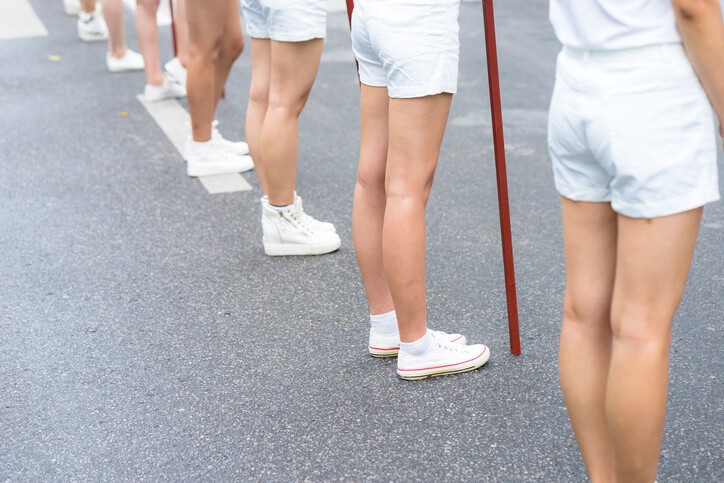
Coaches Influence on Body Image – Why I Quit Crew
Coaches play a big role in shaping body image. In sport, bodies are seen as equipment; machines used for performance. Coaches can empower athletes
to feel strong and confident in their bodies. They also have the potential to cause harm. Recently, a client shared a traumatic experience
she’d had with a coach and it reminded me of an experience I’d had in college.
I joined the crew team my freshman year. It was a club sport and I assumed “club” meant low-key (little did I know there’s no such thing as low key crew).
We were all new to rowing which made taking on a college level sport less intimidating. I was athletic and sports had been a big part of
my life up until this point. I’d decided not to continue with ski racing in college and was looking to fill the void. My roommate
and friends thought I was crazy for voluntarily getting up at 4 o’clock in the morning to exercise (I would now agree) but I really enjoyed
it. My brisk bike rides to the boat house offered much-needed time to myself. Crew practice energized me and helped me focus in my early
morning science classes. I felt strong and confident, proud of my body. The team also provided a nice sense of community at a large university.
Our coach was tough. She took our training very seriously and pushed us hard. This didn’t bother me, I didn’t mind working hard. While
I found her sternness humorous given the level of the sport we were at, I also respected her passion and commitment.
I remember our first regatta vividly. We board the bus early in the morning with the upperclassmen. It felt more like the middle of the night
because it was still dark out and I was half asleep. There was some commotion at the front of the bus as several girls climb off. I look
out the window and see the women’s lightweight crew team running laps on the track, the coxswain wrapped in several layers of sweats. They were
worried they wouldn’t make weight. We all watch patiently as they attempt to sweat off a collective pound or two. This ritual looks painful
and practiced. I think back to several wrestlers I’d known at boarding school, one who would spit saliva into a paper cup in chemistry class
in an attempt to make weight. It’s not surprising to learn that research shows lightweight rowers (and wrestlers) have a higher prevalence of caloric restraint,
diuretic misuse, and disordered eating patterns.
I sat in seat 7 of the shell – 2 seats from the stern where the coxswain sits and directly behind the stroke who sets the rhythm of the boat. My
job was to closely follow the rhythm of the stroke and to act as a “buffer” between her and the rest of the crew. While I’d trained in this seat,
with the added energy and anticipation of our first race, today I felt “stuck” and uncomfortable in the boat. Here I was sandwiched between one
person who was setting the rhythm of the boat and a very intimidating 8 seat yelling “stroke, c’mon, faster!” (in addition to the coxswain yelling
her orders). I remember thinking “Get me out of this boat!”. Maybe crew wasn’t for me after all.
At our next practice, my coach has all of us line up in a row facing her. She goes down the row and one-by-one points to each of my team members
and says one of the following (or some variation of this):
“You need to eat one more bagel, 1 more slice of pizza and run 1 more mile a day”
“You need to eat one less bagel, 1 less slice of pizza and run 2 more miles a day”
“You’re fine”
“You need to eat one more bagel a day”
“You need to eat one more bagel and one more piece of pizza a day”
What was going on here? Was this really happening? Once again, I’m thinking “Get me out of here!” It was cold outside
but I felt warm as my blood rushed through my body. I waited for my turn. The moment arrives and my coach is standing right in front of
me. Without eye contact, she looks me up and down and delivers her verdict – “you’re fine”. I didn’t feel fine. I felt insecure,
exposed, dehumanized and objectified. Plus, in all honesty, part of me was was a little jealous of the girls who were asked to eat an extra bagel
and slice of pizza (read as “too thin”). I was, after all, an 18-year-old girl in a society that values too thin. I wondered what
all the other girls were feeling. This was wrong, we all knew it. Yet, none of us said anything. Why? Set aside the fact that
we were all 18 years old and just finding our voices, shame and humiliation may explain it. As this article states “It is in the nature of humiliation that it undermines the victim’s ability to defend himself against his aggressor”.
I couldn’t leave practice fast enough. My friend and I left together making our way to the dining hall where we processed (over bagels). We
both quit the next day. That was the end of crew team for me. It wasn’t a hard decision given the sport wasn’t for me. But,
what if I had actually loved the sport? What might another athlete endure for the sake of her sport? We were all freshman and
at an increased risk for eating disorders.
Did some of my fellow teammates go on to develop eating disorders?
Coaches have power. This power comes with responsibility. Coaches have the ability to positively (or negatively) influence body image and self-esteem
in athletes. Education on eating disorders and other mental illness is crucial to ensure the knowledge and skills necessary to navigate this
area with athletes. No coach intends to cause harm. Their position of authority, however, places them in a position to do so even when
unintentional. While the body may be the “equipment” used in sport, it’s important not to separate it from the person who inhabits it.
Body dissatisfaction contributes
to eating disorders and disordered eating patterns. Disordered eating place athletes at increased risk for Relative Energy Deficiency in Sport (REDS) and subsequent injury. Early signs of eating disorders can be tricky to spot in athletes.
Good athlete and anorexia nervosa traits are similar. Coaches need training to spot problems early in order to help prevent injury and ensure the psychological wellbeing of their athletes.
It is so important that coaches receive training on how to help recognize and prevent eating disorders. Here are a few resources from the
National Eating Disorder Association.



